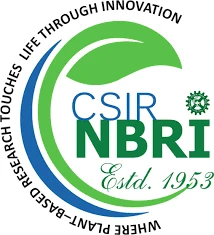Overview
Nawab Saadat Ali Khan of Oudh in 1800 A.D. established a royal garden, and later, the last nawab of Oudh dedicated this garden to his queen Sikandar Mahal Begum and named it as ‘Sikandar Bagh’. Britishers made it a Government Horticulture Garden as it was actively used in horticulture activities. It was turned into a botanic garden during 1932 by Prof. Birbal and Dr. S.K. Mukherjee for the study of medicinal plants and cultivation by acquiring more land from the government. It was then named as National Botanic Garden or NBG. Later Council of Scientific and Industrial Research adopted NBG and since 1953 CSIR is funding various research and development plans for the organisation. The transformation from a mere horticulture garden to a hi-tech research institution capable of conducting any advanced research, the institution has grown. In 1978 it was renamed as National Botanical Research Institute. The mandate of CSIR-NBRI is “to undertake basic and applied research on different aspects of plant science, consisting of systematics, conservation, documentation, prospection and genetic improvement with particular stress on non-traditional, under-exploited, and wild plant genetic resources of India for human welfare and development that is sustainable.”
Academic Performance
CSIR-NBRI offers a Ph.D. programme to the nationals for research as it has the best facilities for a student of botany. NBRI invites applications from M.Sc. and M.Tech. graduates who have qualified JRF/SRF from UGC/CSIR etc. In addition to the Ph.D. programme, NBRI offers various short-term training programmes and certificate courses for the general public. Some programmes are Bonsie Techniques, Garden management, Home gardening, Landscaping, etc. NBRI supports other Ph.D. scholars from other universities as well by partnering with them. Other than that students of post-graduation who are interested in high-end research can also enjoy a training programme. The disciplines are Biotechnology, Microbiology, Pharmacology, Phytochemistry, Bioinformatics, Agricultural Sciences, Agronomy, Floriculture, horticulture, Tissue Culture, Agronomy, Biochemistry, Botany, Life Sciences, Environmental Sciences, and Management. CSIR-NBRI does not conduct campus recruitment as it only offers Ph.D. programmes. Research scholars at NBRI are fortunate enough to be a part of the institution.
Research & Development
Being the nationally acclaimed institution of India, NBRI plays a dominant role in the research and development of botany. The R&D department has seven divisions under which they conduct various researches. Those seven divisions are
- Plant Diversity, Systematics and Herbarium.
- Pharmacognosy, Phytochemistry and Product Development.
- Plant Ecology and Environment Technologies.
- Molecular Biology and Biotechnology.
- Plant Genetic Resources and Improvement.
- Botanical Garden, Plant Conservation and Agro-technologies.
- S & T Management.
Each division performs and publishes its own research studies. Presently all the divisions are working on various research studies.

